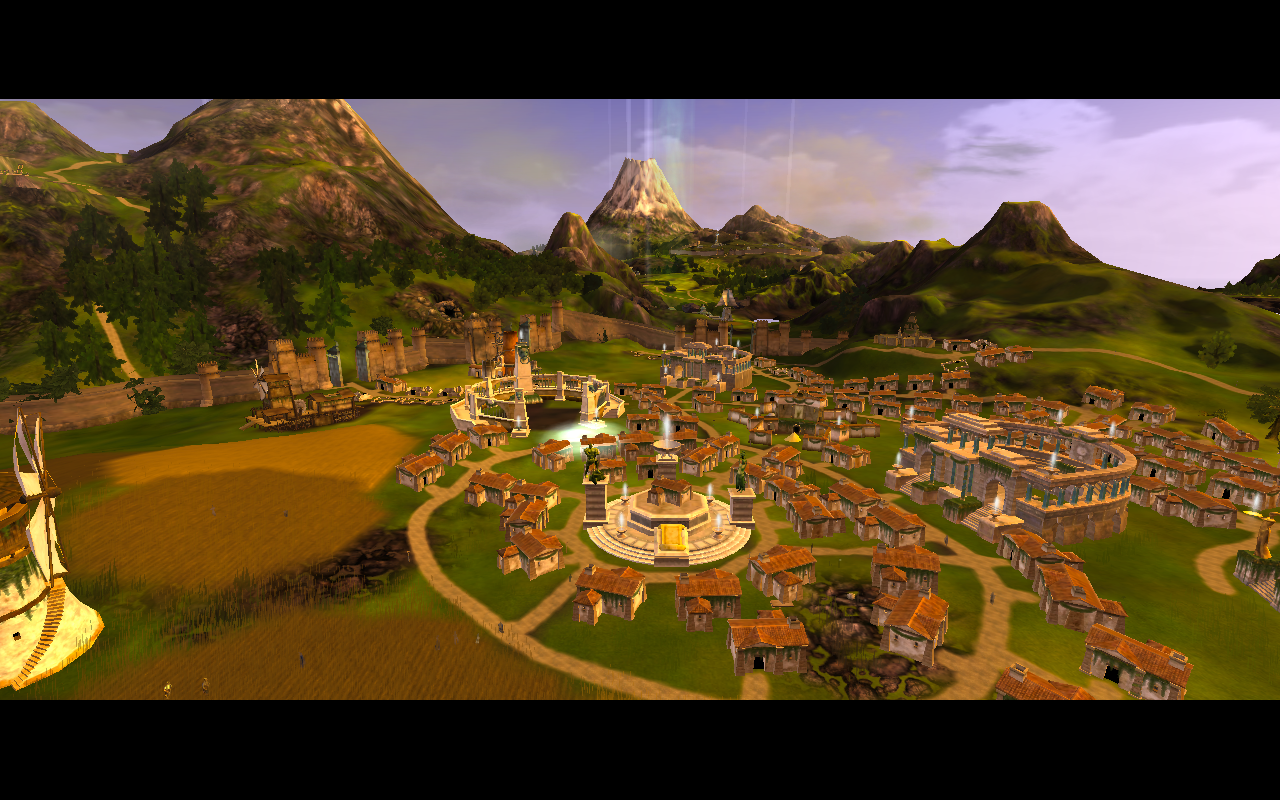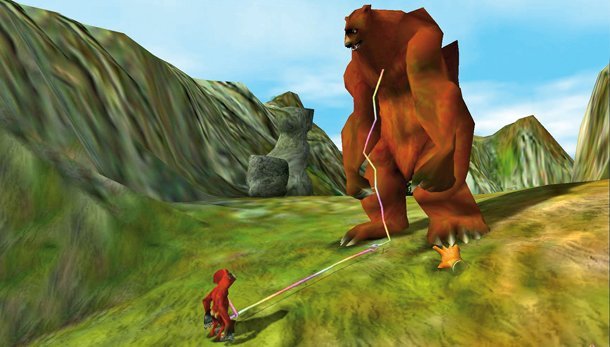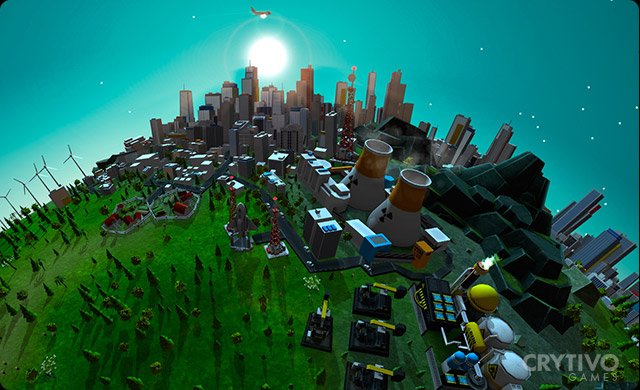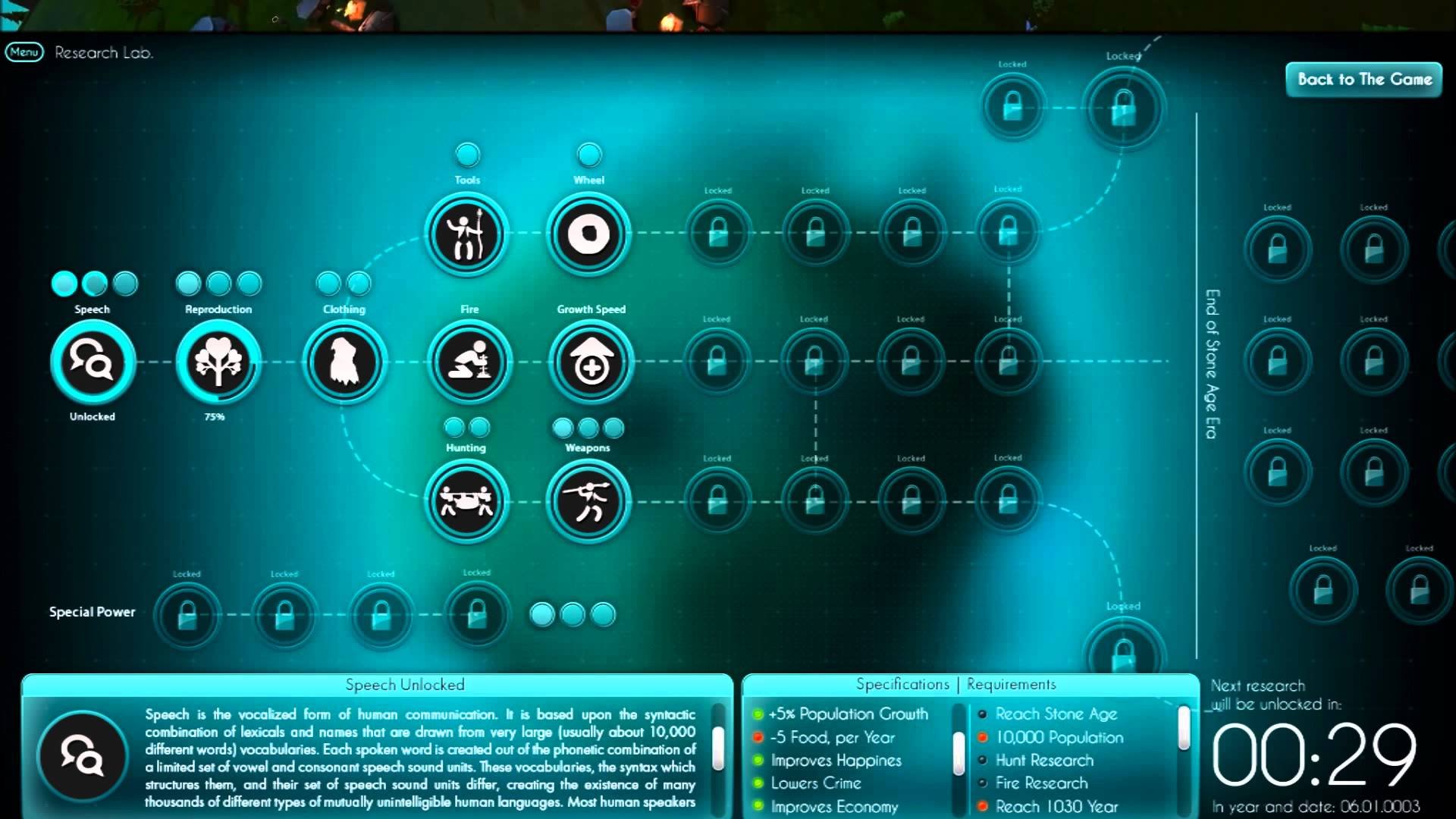Hello Steemians!
While walking down memory lane, I came across a game genre that was as pleasing to play as it was heartwarming: The God Game. God Games are "artificial life simulation games" where the player uses "supernatural powers" to indirectly influence a population of simulated worshipers. It is considered different from RTS-games in the sense that the player cannot directly take control of his units to tell them what to do.
The Frog and the Lion
The Populous-series were developed by Bullfrog and published by Electronict Arts and were considered the first God Games. I could have a go and talk about them, but I've only ever played a demo of the 3rd game in the series. They're all available on Good old Games though, if you want to have a look at them.

A god game I did play, however, was Black and White, a game developed by Lionhead. In B&W the player is a god, created by a tribe's "need for spiritual guidance". As a god, you would need to listen to your villager's requests (read: quests) and try and fulfill their everyday needs. The thing that differentiated this game from its spiritual "predecessors" was the ability to raise a creature whose personality would be shaped by the actions of the player.

Off course, you were not the only god. Your adversary throughout the game was another god called "Nemesis" and while you were creating "your religion" and gaining followers for it, he did so as well. As a god, the player had some magical abilities, called "Miracles". Those would range from conjuring food, wood and water for his followers, to flinging fireballs and unleashing lightning storms upon his enemies.

The creature the player could control, would learn those spells as it saw its parent use it. For example, if you would use a bolt of lightning upon your own followers a lot, it would copy you in doing so. Just like a real child would do. At least I think it would do that, since I'm not a parent myself. I am seeing that kind of copying behavior on my nephews and nieces though. There were different leashes you could put on your creature that each had a different effect on it. The Leash of Learning, for example, would allow your creature to learn from whatever the leash was tied to. If you would tie it to the village square and you would put food and wood into its stockpiles, your creature would learn to do it as well. The other two were the Leash of Aggression and the Leash of Compassion. Your Nemesis also had a creature and when the 2 would meet, they would sometimes start fighting. That behavior depended on how you raised your creature off course. If a fight would happen, the villagers would stand around the fight and cheer for their god's creature. You could influence the battle by clicking on either your creature or the enemy creature to either attack or defend. Overall, I really enjoyed playing the game and its sequel: Black & White 2 and I would recommend trying it out if you haven't already.
Pixels, villagers and monsters
A few years ago, I've helped kick-starting a game called Retro Pixel Castles. It features a "retro-pixely" take on the god-game genre. You could compare RPC's gameplay to a mixture of a God Game with a Village Building Simulation-game.
The player starts off by selecting a part of the world map to play in. Once selected, you can place your village center and people will start beaming down. They beam down as if you, as a god, have selected them for this duty. When the village center is finally built, you unlock more structures like farms, lumber mills or mining facilities. The rest plays out as a village sim would: You designate where your villagers can mine stone and fell trees. Happy villagers generate faith you can use to cast spells.
During the day, your villagers can do everything in peace, but at night monsters show up and you need to build some defensive structures to help your villages fend them off. They can definitely fend for themselves, but they can die. Defenses include arrow towers and fireball towers but also golem towers. The game will eventually feature profile progression, meaning that when you play the game the first time, not everything is available for you, but your account will gain experience and will progressively unlock more buildings and goodies.
As it is currently still in active development with monthly updates, a lot of features and content have not made it into the game yet. So far, I've really enjoyed playing it and watching it grow into what it currently is. I would recommend picking this one up if you like the genre and even though it's still in early access, the game is very playable.
The universe is your playground
The Universim is a game I'm greatly looking forward to. It reminds me a bit of the "Tribe Phase" in Spore, but expanded into epic proportions.

In The Universim your people start out in the stone age and you need to guide them through the ages and make sure they don't destroy themselves (You know how people are;). It tries to simulate the actions of a real society. Maybe, if they do wage war, you could just have them destroy each other and start over "fresh".

During the game, you will gain research points and have to unlock special "technologies" in order for your civilization to thrive. You can't create a civilization without the ability to speak or you can't leave the caveman phase without the ability to create a fire.

With every discovery also comes a risk. When you reached the spacefaring age for example, you could find a planet with valuable resources, but that planet might be on the brink of self-destruction or its sun could become a supernova. Will you risk losing your space crew for those valuable resources or do you already have a freighter filled with other resources?
God games and City Building have always had a special place in my gaming heart. Tell me, do you like them as well? Which one was or is your favorite?
As always, thank you for reading and have a good one!
Cheers!
Wanna play something together? Add me on Steam, GoG, Origin, PSN or XBOne (HerrLonnie)
Previous post: Gamemories - The way I intended it
Be sure to check out my girlfriend @mevilkingdom and brother in law @steve-walschot, the creator of SteemPay.io and vouched Steem applications developer.
